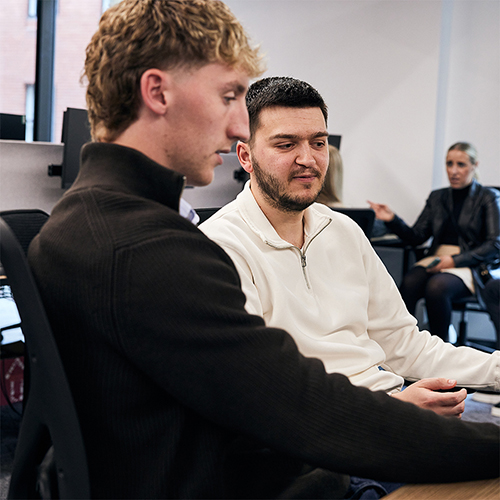What is Mental Health and what can you do to maintain or improve it – by David Harrop

David Harrop, Group Finance Director and Mental Health Champion at Reward, delves into the topic of mental health.
If your physical health is about your body, then mental health is about your mind – about your internal thoughts, feelings and behaviours. As with physical health, your mental health can change regularly and you can experience good mental health – ‘she’s in a good place’ or poor mental health – ‘he seems a bit down’. At the far end of the mental health range could be a diagnosable mental health condition such as an eating disorder or depression.
Maintaining positive mental health is massively important. If you are happy and feel good about yourself, you are more likely to do things well and be more resilient if things don’t go so well. With positive mental health, you will be best placed to get things done, be a good friend, support your family and be effective at work.
In contrast, during periods of poor mental health, everything seems more difficult. You may find socialising harder, maybe shy away from helping others and might get overwhelmed at work. Unfortunately, as with physical health, we don’t always get a free choice on the state of our mental health – things happen to each of us every day (and over the longer term) which impact on our mental health (both positively and negatively).
There are a wide range of factors and events which can impact negatively on your mental health. These include money worries, being under pressure or stress, whether at work or personally – too much to do and not enough time to do it. Maybe you are lacking support, feeling lonely or someone is behaving unreasonably towards you. Illness or injury to you or a loved one could negatively impact your mental health, as could inequality or discrimination.
It is also the case that sometimes your own behaviour or attempts to cope with difficulty or manage your mental health can make things worse – comfort eating, use of drugs and alcohol, excessive social media scrolling can all make you feel worse in the longer term.
What can you do to improve or maintain positive mental health?
So having recognised the importance of positive mental health and identified some of the many factors that can negatively impact on mental health, what can you do to improve or maintain positive mental health? The good news is that there are loads of things.
One of the most impactful yet simple thing you can do for your own mental health is to exercise self care. Make time for those things that make you happy and make you feel good about yourself, whatever those things are. Spend time with your friends and family, people who care for you and make you laugh. Take time out for your hobbies – sport, reading, exercise, music, travelling, watching a film. Whatever your thing is, everyone has something. Doing things you enjoy will take your mind off the negative things and can quickly make you feel better.
There are other physical and lifestyle steps you can take to improve your mental health – for example, giving yourself chance to sleep, eat healthily, or get outside can all make you feel better. Taking your holiday entitlement is important as is having down time from technology and email. Getting organised, setting realistic goals and making time to complete things free from distraction can also help you feel like you are making progress.
With your mental health it is really important to recognise the signs or behaviours when you know that you are getting wound up or overwhelmed and thus not performing to your best. At such times you need to have a “coping strategy” to implement for yourself, which might be talking to a trusted confidant, spending time on some of your self care things, or taking some time out. The coping strategy should allow you to lessen the mental health pressure.
If however the nature of the problem is greater or the coping strategies are not working, then another possible source of help could be one of the Mental Health First Aiders available at Reward. We are lucky that as an organisation we take mental health seriously and we have a number of colleagues who have been formally trained in Mental Health First Aid and can provide confidential advice and support.
A Mental Health First Aider is able to listen to your situation and provide empathy and support
The first aider may be able to help you more clearly identify and assess the causes of the problem, provide support and if appropriate direct you towards the many other sources of support that are available from trusted sources, potentially including professional help.
Maintaining positive mental health will help you in your day to day activities and in your key relationships. Modern life with pressures to achieve and appear happy can make you feel unable to cope. The good news is that Reward recognises the importance of mental health, and wants to support all colleagues.
Looking after our team is one of our core principles and values. Hence, the newly formed Wellness team, and the large number of mental health first aiders available to help colleagues throughout the company. The key message is that if you are experiencing mental health challenges at any time then confidential help is available and it is more than ok to ask.










